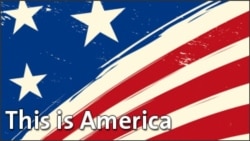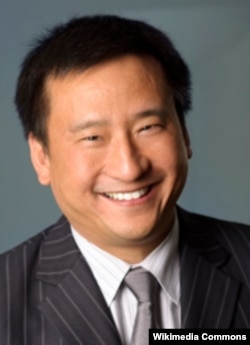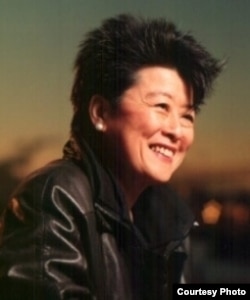Frank H. Wu is the son of parents who immigrated to the United States from China. Mr. Wu says people ask him every day where he is from.
“I explain that I’m from Detroit, Michigan,” he says. Detroit is a city in the middle of the US. “But people shake their heads and say: ‘No, no. What I mean is, where are you really from?’”
Frank Wu says the word “really” shows he is not considered a true American. He says the question can make him and other Chinese Americans feel hurt.
Mr. Wu leads the Hastings College of the Law at the University of California. He notes that some Americans say they do not trust Chinese Americans. They are called “communists,” he says, with secret loyalties to China.
A 2012 survey of U.S. public opinion found some truth in Mr. Wu’s observation. The survey showed that about one-fourth of those questioned believed Chinese Americans would support China over the United States in a dispute between the countries.
Another survey found that 72 percent of Chinese Americans said discrimination against their community was a problem.
The political is personal
Chinese American writer Helen Zia once said, “Whenever US-China relations get chilly, Chinese Americans get pneumonia.”
In other words, political problems between the two countries affect Chinese Americans personally.
Trade between China and the United States is one example. Some American industries say Chinese businesses import products at prices that are too low. The prices are not fair, they say. And, as a result, American companies must cut workers.
Helen Zia says such complaints are like thinking of Chinese imports as evil.
Ms. Zia says the American public also criticizes US politicians for developing close relationships with China.
For example, in 2012, critics of President Barack Obama said he had violated election laws by accepting cash donations from China. The Obama campaign denied violating such laws.
Ms. Zia said US politicians accuse each other of being “corrupted” by Chinese money. She said that is another way of playing to the public’s fear of any Chinese “invasion” of the United States.
Unintended discrimination
In 2009, a Chinese-American group called the Committee of 100 asked the American public for their opinion about Chinese Americans. About 80 percent said they had a good or positive attitude about Chinese Americans.
But only 64 percent of Chinese Americans said they felt others had a positive attitude toward them.
Sociology professor Charles Gallagher says most Americans believe they are accepting of minorities. But, he says, Americans can accidentally cause harm if they act like everyone in a minority group is the same.
Bernie Wong leads a Chinese American organization in Chicago. She says attitudes about her community have improved.
In the past, she says, Americans believed people from China worked only in stores and restaurants.
“Now there are many Chinese Americans who are in the corporate world and very successful in investing in new businesses,” she says. “So the whole attitude has shifted.”
Bernie Wong adds that the Chicago government now asks Chinese Americans for their opinions about political and business concerns.
And, when Chinese Americans say they have been treated unfairly, she says, her organization works with city officials to resolve the problem.
I’m Chris Cruise.
*Michael Lipin, Haleema Shah and Indrees Ali prepared this report. Kelly Jean Kelly wrote it for Learning English. George Grow was the editor.
_______________________________________________________________
Words in This Story
assume – v. to think that something is true or probably true without knowing that it is true
discrimination – n. unfair treatment or consideration based on opinions about a whole group instead of on the qualities of an individual.
harm – v. to injure; to damage; n. damage; hurt
resolve - v. to find an answer or solution to (something).
unintended – adj. not planned as a purpose or goal : not intended
Now it’s your turn to use these Words in this Story. In the comments section, write a sentence using one of these words and we will provide feedback on your use of vocabulary and grammar.







